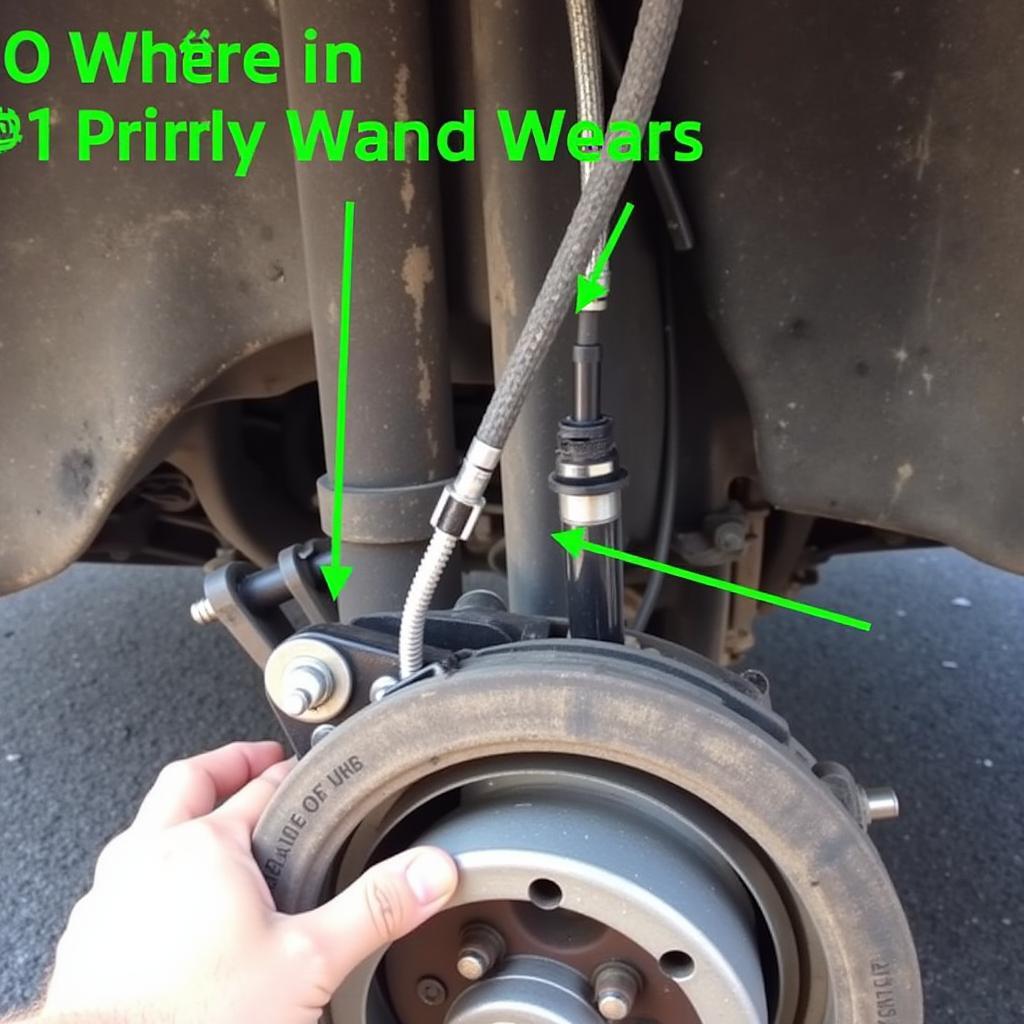The parking brake warning light on your 2004 Chevy Astro is designed to alert you to a potential issue with your braking system. While it can be alarming to see any warning light illuminate on your dashboard, it’s essential to understand what this particular light means and how to address it. This article will guide you through the common causes of a parking brake warning light in a 2004 Chevy Astro and provide practical solutions to help you get back on the road safely.
Common Causes of a Parking Brake Warning Light
There are several reasons why your 2004 Chevy Astro’s parking brake warning light might be on. Some of the most prevalent causes include:
- Engaged Parking Brake: This is the most straightforward explanation. Always double-check to ensure the parking brake is fully released before driving.
- Low Brake Fluid: Brake fluid is the lifeblood of your braking system. If the fluid level is low, it can trigger the warning light. A leak in the system or worn brake pads are common culprits.
- Faulty Parking Brake Switch: The parking brake switch is responsible for turning the warning light on and off. A malfunctioning switch might incorrectly signal an engaged parking brake, even when it’s not.
- Worn Brake Shoes/Pads: As your brake shoes or pads wear down, the brake system may require more fluid to operate correctly, potentially triggering the warning light.
- Electrical Issues: Loose wiring, a blown fuse, or a faulty sensor can also cause the parking brake warning light to illuminate.
 2004 Chevy Astro Parking Brake Assembly
2004 Chevy Astro Parking Brake Assembly
Troubleshooting the Parking Brake Warning Light
Before heading to a mechanic, there are a few troubleshooting steps you can perform yourself:
- Check the Parking Brake: As obvious as it might sound, begin by ensuring the parking brake is fully disengaged. Sometimes a slight bump can partially engage it.
- Inspect Brake Fluid Level: Locate the brake fluid reservoir under the hood. The reservoir should have a “Min” and “Max” marking. If the fluid level is below the “Min” line, add the appropriate brake fluid (consult your owner’s manual).
- Examine the Parking Brake Switch: If the brake fluid level is adequate, the parking brake switch might be the issue. You can try to locate and inspect the switch for any visible damage or looseness. However, diagnosing switch issues often requires a mechanic’s expertise.
When to Consult a Mechanic
If the parking brake warning light remains illuminated after performing these checks, it’s crucial to consult a qualified mechanic. Driving with a potential brake system issue is incredibly risky.
“Ignoring a parking brake warning light can lead to more extensive and costly repairs down the road. Addressing it promptly is always the safest course of action,” advises John Miller, a certified automotive technician with over 20 years of experience.
A mechanic can accurately diagnose the root cause of the problem using specialized diagnostic tools.
Remote Diagnostics and Software Solutions
In some cases, a mechanic can diagnose and even resolve brake system issues remotely using advanced diagnostic software. This involves connecting your 2004 Chevy Astro to a diagnostic tool that communicates with the vehicle’s computer system. Through this connection, a mechanic can:
- Read and interpret fault codes stored in the vehicle’s computer.
- Monitor real-time data from various sensors, including those related to the braking system.
- Perform software updates and calibrations.
While not all brake issues are resolvable remotely, this technology can often provide a quick and convenient solution for certain problems.
Conclusion
The parking brake warning light in your 2004 Chevy Astro should never be ignored. While a simple oversight like an engaged parking brake is often the cause, more serious issues with the braking system could be at play. By understanding the potential causes and taking appropriate steps, including seeking professional help when needed, you can ensure the safety and reliability of your vehicle.
